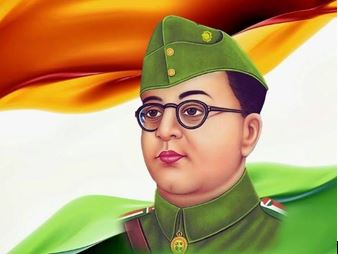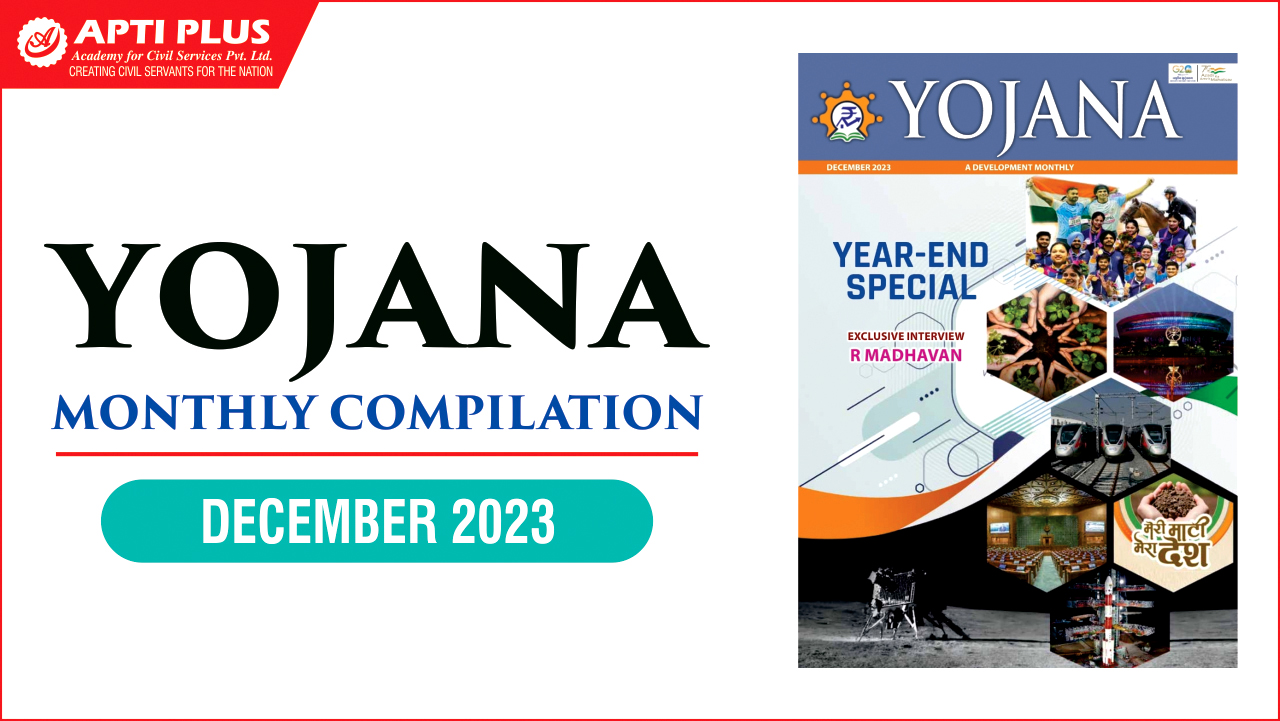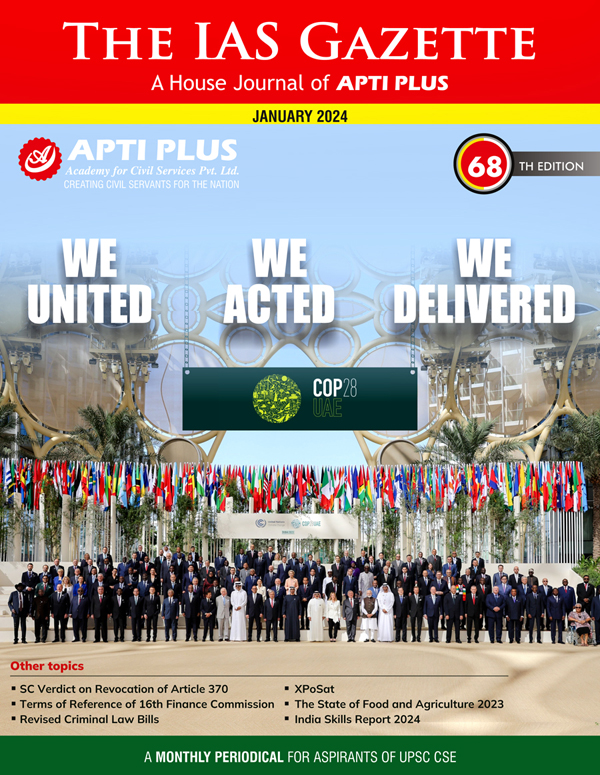PARAKRAM DIWAS
Disclaimer: Copyright infringement not intended.
Context
On Jayanti of Netaji Subhas Chandra Bose, the Prime Minister honoured the life and courage of Netaji.
Details
- Netaji Jayanti, officially known as ParakramDiwas, is a national event in India commemorating the birth anniversary of the esteemed freedom fighter, Netaji Subhas Chandra Bose.
- Celebrated annually on 23 January, the day honors his pivotal role in the Indian independence movement.
Evolution of Celebrations
- Netaji Jayanti was celebrated in Rangoon about five months after his disappearance.
- Renamed as ParakramDiwas, the celebration took a new form in 2021 on Netaji's 124th birth anniversary.
- The Forward Bloc and Subhas Chandra Bose's family initially advocated for declaring Netaji Jayanti as Deshprem Divas (Day of Patriotism).
- Mamata Banerjee suggested Deshanayak Divas (Day of National Hero) and demanded national holiday status.
- The Government of India announced on 19 January 2021 that it would be celebrated as Parakram Divas annually, triggering reactions from Netaji's family, Trinamool Congress, and Left parties in West Bengal.
About Netaji
Life:
- Birth: Subhas Chandra Bose was born on January 23, 1897, in Cuttack, Orissa Division, Bengal Province, to PrabhavatiDutt Bose and Janakinath Bose.
- Education: After early schooling at Ravenshaw Collegiate School, he joined Presidency College, Calcutta, but was expelled for nationalist activities. He later went to the University of Cambridge, U.K.
- Political Mentor: Influenced by Vivekananda's teachings, Bose considered him his spiritual Guru. His political mentor was Chittaranjan Das.
- Editorship: In 1921, he took over the editorship of the newspaper 'Forward,' founded by Chittaranjan Das's Swaraj Party.
Political Journey:
- Congress Leadership: Elected President of the All India Youth Congress in 1923, and Secretary of Bengal State Congress.
- Imprisonment: Jailed in Mandalay in 1925 due to connections with revolutionary movements, where he contracted Tuberculosis.
- Congress Presidentship: Became Congress President in 1938 (Haripura) and 1939 (Tripuri) but resigned due to ideological differences with Gandhi.
- Formation of Forward Bloc: Established the All India Forward Bloc in 1939, aiming to consolidate the political left.
Contributions to Freedom Struggle:
- Civil Disobedience Movement: Active participant in the Salt Satyagraha of 1930 and opposed the suspension of the Civil Disobedience Movement and the signing of the Gandhi-Irwin Pact in 1931.
- Indian National Army (INA): Organized the INA during World War II, aiming to fight the British and liberate India. Famous slogans: 'Jai Hind' and 'Dilli Chalo.'
- Azad Hind Government: Formed the Azad Hind Government and the INA on October 21, 1943, with the goal of liberating India with Japanese assistance.
Legacy and Impact:
- World War II and the Indian National Army (INA):
- As World War II began, Bose was imprisoned for participating in civil disobedience and was put under house arrest. Managing to escape to Berlin via Peshawar and Afghanistan, he reached Japan and organized the Indian National Army (INA) to fight the British and liberate India.
- The INA fought allied forces in 1944 inside India, but with the fall of Rangoon, the Azad Hind Government ceased to be an effective political entity.
- Legacy and Impact:
- The INA trials sparked massive demonstrations, leading to disaffection in the British Indian army and influencing the British decision for a quick withdrawal.
- The INA experience played a crucial role in India's struggle for independence.
Ideology:
- Influence of Hindu Spirituality: Influenced by Swami Vivekananda's teachings and considered the Bhagavad Gita a great source of inspiration.
- Synthesis of Ideologies: Advocated a synthesis of socialism and fascism, criticizing Nehru's view on communism.
- Authoritarianism: Expressed admiration for authoritarian methods seen in Italy and Germany during the 1930s for building an independent India.
Controversial Stances:
- Anti-Semitism: Initially opposed granting asylum to Jewish refugees in India, and in 1938 denounced Nazi racial policy. However, later expressed support for German anti-Semitism, linking it to Indian liberation.
- Association with Axis Powers: Troubling legacy associated with atrocities related to Jews and ethical dilemmas due to alliances with Axis powers.
Quotes by Subhas Chandra Bose:
- "Give me blood, and I will give you freedom."
- "Dilli Chalo!" ("On to Delhi!") - A motivational call to the Indian National Army.
- "Ittehad, Etemad, Qurbani" - Urdu for "Unity, Agreement, Sacrifice."
- "One individual may die for an idea, but that idea will, after his death, incarnate itself in a thousand lives."
- "Freedom is not given – it is taken."
Books by Subhas Chandra Bose:
- "The Indian Struggle" - Bose's comprehensive work covering India's independence movement from 1920–1934. He wrote the first part during his travels in Europe in the mid-1930s.
- "Netaji's Letters to Emilie Schenkl" - A collection of letters exchanged between Subhas Chandra Bose and his wife, Emilie Schenkl.
- "Collected Works of Subhas Chandra Bose" - A compilation of Bose's speeches, writings, and letters, providing insights into his political philosophy and vision for India.
Magazines and Journals Associated with Subhas Chandra Bose:
- "Forward" - The newspaper edited by Bose in 1923, founded by Chittaranjan Das's Swaraj Party.
- "Azad Hind Radio" - The radio station associated with Bose during his time in Germany, broadcasting messages for the Azad Hind Government.
- Berlin Broadcasts (1942–1943): During his time in Germany, Bose addressed the Indian community and the world through broadcasts on Azad Hind Radio. He highlighted the need for India's independence and sought support from various nations.
- Tokyo Broadcasts (1943–1944): Bose's speeches in Tokyo, especially the ones announcing the formation of the Azad Hind Government and the Indian National Army, are significant in the history of India's struggle for independence.
Conclusion
Netaji Jayanti, now celebrated as ParakramDiwas, stands as a testament to the indomitable spirit of Subhas Chandra Bose.Despite the debates over nomenclature, the day serves as an occasion for the nation to reflect on the valiant efforts of a leader who dedicated his life to India's independence.
MUST READ ARTICLES:
https://www.iasgyan.in/daily-current-affairs/sc-bose
https://www.iasgyan.in/blogs/legacy-of-subhash-chandra-bose
|
PRACTICE QUESTION Q. Subhas Chandra Bose's life and ideology are complex, reflecting a blend of spirituality, political fervor, and controversial alliances during a crucial period in India's struggle for independence. Examine. (250 Words) |






1.png)
